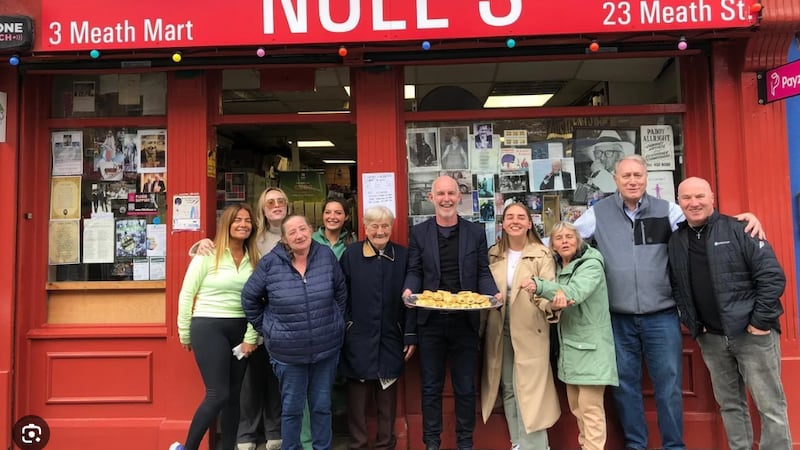Back in March when the implications of the Coronavirus was starting to become apparent, my wife and I commented that the residents in our residential/nursing homes were going to be seriously vulnerable given their age range and underlying conditions. We are not epidemiologists just ordinary punters. Sadly, our fears came to pass and many did pay the ultimate sacrifice with their families suffering unimaginable pain.
Now eight weeks later our Health Trusts and Stormont have now decided to give the residential/nursing homes some belated attention after the many deaths and the high rate of infections in these facilities.
Why has this occurred? Surely, when we geared up our hospitals to cope and manage the coronavirus, this should have happened simultaneously with our residential/nursing homes and community care workers.
Newton Emerson (May 14) alludes to the fact that unlike other parts of the United Kingdom we are supposed to have a unified health and social care system. Our health and social care systems since their amalgamation in 1973 have never been seen as one entity by senior management. Social care including domiciliary care and residential/nursing home care because they are not at the ‘cutting edge’ have never been top of the agenda within our Health Care system.
Until the mid-1980s our home care/home helps were not entitled to holiday and overtime pay. Even though they were employed all-year round. This only came about after much lobbying by the trade union movement. Indeed, up to four years ago the Belfast Trust employed 80 per cent of their home care staff on what were effectively zero hour contracts.
There has been much disgust by Joe Public that this was happening in this day and age.
If a home care worker’s client died or went into hospital which meant they no longer provided care and support, they lost this money out of their wages. No other designated staff employed directly by the health trusts endured such penalties.
As proved by the recent events and inactions, I am afraid sadly that until the mind set changes within our Health and Social Care systems, our frail elderly and vulnerable people will always be an afterthought.
TED GALLAGHER
Belfast BT12
Lockdown extension would be a rule older people couldn’t live with
Having read Allison Morris (May 14), I was in agreement with her realistic but positive perspective of the current situation of this dreadful pandemic. I too noted with pleasure the signs of unity at the press conference when the First Minister and Deputy First Minister presented, in unison, the roadmap to recovery with the plan of easing the lockdown. It was a cogent, well thought and rational document based on the advice and opinions of relevant experts. Yes, it did not have dates but it had promises of easing situations as the awful death rate subsides along with the infection rate, both of which are still worrying. I thought that this method was more logical than having dates that may not be met and, as we can see there has been further easing without dates but with expert advice.
I do however, while agreeing with the views expressed, make a personal appeal that myself and thousands of others who are over 70 and at risk do not have to endure another year of lockdown as it has been stated recently. That extension would be a rule that we could not live with. Personally I have had a good life and career and I would like to spend my final life portion – as I had been doing – with friends and family, engaging in voluntary and community work and doing it even with my “underlying conditions”.
Here’s hoping we can all keep safe and distantly together.
EILEEN BELL CBE
Co Down
Advance care planning
This crisis is forcing us to think about our lives in ways we never expected.
‘Uncertain’ is a word we’ve heard more than ever in recent weeks to describe the circumstances that we are living through right now. For people living with cancer, these can be terrifying times. At a time when we long to hold loved ones close, many of us are separated and isolated from those we care about and who care about us.
During this crisis we have lost many things that we would ordinarily take for granted. In the uncertainty of it all, one of those things has been time and opportunity to make plans for normal, everyday things like work, family life and even death.
We don’t like talking about death and yet dying, death and bereavement are important to everyone’s lives.
Macmillan Cancer Support believes that people approaching the end of their lives should be supported to make informed decisions so that they die in the place and in the way they have chosen. That means making advance care planning a priority – talking about death and making plans for it is too important to be left to the end. Dying is part of life.
Nothing can prepare us for the impact of something as devastating as coronavirus. This crisis is forcing us to think about our lives in ways we never expected to.
We are living in uncertain times but when we come through it, let it have been the moment we truly understood the comfort and value of talking about death and preparing for it with those we love.
ADRIENNE BETTELEY
Macmillan Cancer Support







